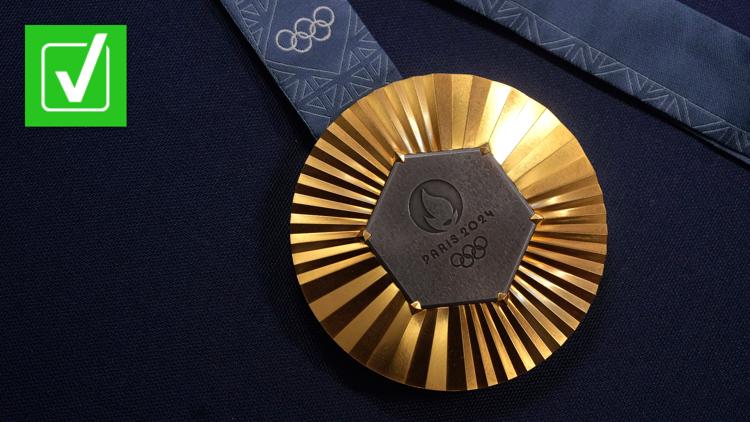While U.S. Olympic athletes are competing for a place in history at the Paris 2024 Games, there’s also cash on the line.
The U.S. Olympic and Paralympic Committee runs “Project Gold,” which gives athletes $37,500 for each gold medal, $22,500 for every silver medal and $15,000 for each bronze medal.
Governing bodies for specific sports can offer their own rewards for medaling, too. For example, at the 2024 Paris Olympics, all gold medal winners in 48 track and field events are receiving an additional $50,000 prize for the first time ever.
This has led some people online to wonder if U.S. Olympic medal winners have to pay taxes on their winnings.
THE QUESTION
Do some U.S. Olympic medalists have to pay federal income tax on their winnings?
THE SOURCES
THE ANSWER
Yes, some U.S. Olympic medalists have to pay federal income tax on their winnings. It depends on their annual income.
WHAT WE FOUND
Many U.S. Olympic medalists won’t have to pay federal income taxes on the value of their medals and their prize money due to a federal law. But there’s an exception for high-earning athletes.
“Olympic and Paralympic Games medals and prize money are typically not federally taxed unless you have very high income,” the United States Olympic and Paralympic Committee (USOPC) says on its website.
Under U.S. federal tax code, both cash and non-cash prizes are considered taxable income, two accounting professors at North Carolina State University (NCSU) explained in a July 2024 article. Up until 2016, Olympic medalists were taxed on the value of their medals and the prize money that comes along with them. Medals on their own can be worth hundreds of dollars, according to a TurboTax blog post.
But that changed for many Olympians when President Barack Obama signed the United States Appreciation for Olympians and Paralympians Act of 2016 into law.
Under that law, Olympics medalists who have adjusted gross incomes of less than $1 million don’t have to count the value of their medals and cash prizes toward their taxable income, as the Internal Revenue Service (IRS) notes in its 1040 Instructions.
But if an Olympic medalists earns $1 million or more annually, the value of their medals and prize money do count toward their taxable income.
“That means professional athletes, college athletes with large Name, Image, and Likeness (NIL) deals, and other amateur athletes with substantial endorsement income still have to pay tax on the value of their medals and their cash winnings,” the NCSU professors wrote.
For example, U.S. Olympic gymnast Simone Biles made an estimated $7.1 million in 2023, with most of that money coming from endorsements, according to Forbes. If Biles earns as much money in 2024 as she did the previous year, her Olympics prize money will be included in her taxable income.
Based on their annual incomes, high-profile basketball players like LeBron James, Kevin Durant and Steph Curry would also have to include their Paris 2024 Olympics winnings as part of their taxable income.
Even if U.S. Olympic medalists’ winnings aren’t subject to federal taxes, they may still have to pay state taxes, according to the NCSU professors. For example, California does not follow the federal exemption and taxes Olympic prize winnings even if the athlete’s adjusted gross income is less than $1 million.



